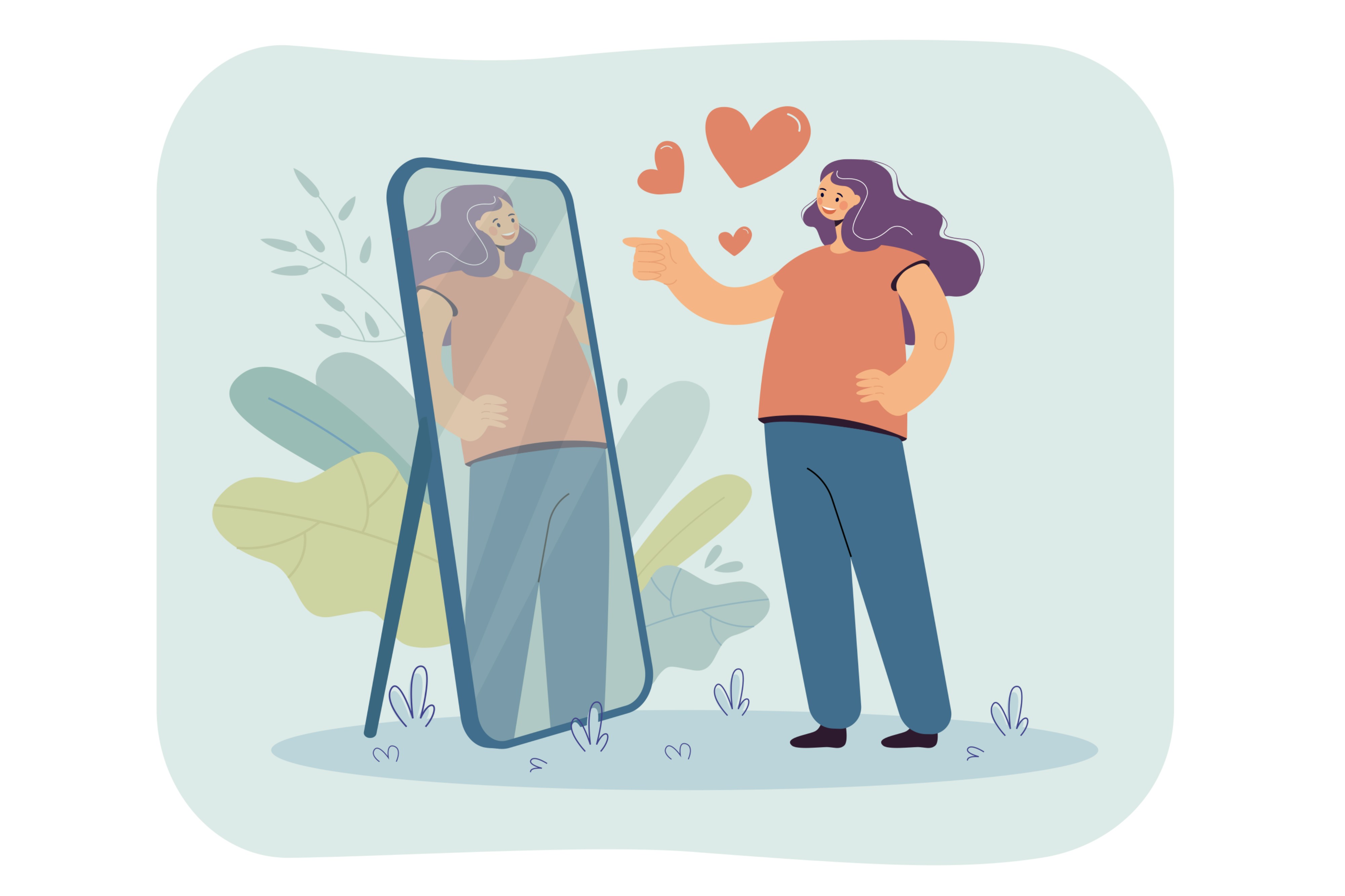Self-esteem is one of those phrases that appears on therapy TikTok, in self-help books, and on wellness accounts, yet often feels vague in real life. People say things like "know your worth" and "do not settle," but it is not always clear what that actually looks like on a Monday morning when you are checking your phone, replying to messages, or sitting in a meeting. The benefits of self-esteem become easier to see when you watch how it quietly shapes your decisions, your limits, and the way you talk to yourself when no one else is listening. Healthy self-esteem is not about becoming the loudest, most confident person in every room. It is more about changing the story you believe about yourself, so the way you move through work, relationships, and free time becomes kinder and more grounded.
One of the first places this shows up is how you relate to attention and validation. When self-esteem is low, every like, comment, or reply can feel like proof that you matter, and every silence can feel like rejection. People in this state often find themselves refreshing notifications, overthinking delayed replies, or reading too much into who viewed their stories. A post that gets little engagement does not just feel quiet, it feels like evidence that they are boring, unattractive, or not good enough. The outside world becomes a constantly shifting scoreboard, and their mood rises and falls depending on what they see on their screen. With healthier self-esteem, attention still feels pleasant, because humans are wired to enjoy connection and recognition. However, it no longer decides a person's value. A low-engagement post is just a post, not a verdict. They can log off social platforms without feeling like they need to change something fundamental about themselves before they come back. That emotional stability is one of the first benefits of solid self-esteem: the gap between "what people think of me today" and "who I believe I am" becomes wider, and that distance gives peace.
The workplace is another environment where the benefits of self-esteem become very visible. Someone who doubts their worth tends to treat every email from a manager as potential criticism and every piece of feedback as confirmation that they are failing. They might stay late even when it is not necessary, not because deadlines demand it, but because they are afraid that leaving on time will be seen as laziness. They volunteer for extra tasks when they already feel exhausted, hoping that constant helpfulness will protect them from disapproval. Over time, they may become the colleague everyone relies on, yet inside they feel used, drained, and anxious. In contrast, a person with healthier self-esteem still cares deeply about performing well, but they also recognize their skills as real and earned. They experience nerves before a presentation, but it does not spiral into "I should not even be here." When they hear suggestions or corrections, they can separate the feedback from their identity. Instead of thinking "I am useless," they think "this part of my work can improve." That shift may seem small, but it makes it easier to learn, easier to handle pressure, and easier to say no without feeling like they are in danger of being exposed as a fraud.
The benefits of self-esteem extend into relationships too, sometimes more powerfully than anywhere else. When someone holds a low opinion of themselves, their standards for how they deserve to be treated quietly sink. They may tolerate constant lateness, broken promises, or emotionally distant partners just to avoid being alone. In friendships, they might stay in group chats where they always feel like the extra person, too scared to leave because they assume no other group would want them. Romantic connections can become a string of situations where they chase people who send mixed signals, mistaking inconsistency for intensity. Self-esteem changes this dynamic by raising the internal bar. A person who believes they are worthy of care and respect starts noticing who shows up and who does not, who listens and who dismisses their feelings, who makes time and who treats them as an option. They may still love the same people, but they become more willing to adjust distance or even walk away from relationships that constantly leave them feeling small. This is not about becoming cold or unforgiving. It is about no longer calling chaos and disrespect "normal" just because they are familiar.
Self-esteem also changes how people respond when they are told they have caused harm. With fragile self-worth, hearing "you hurt me" can feel almost unbearable, as if it means "you are a terrible person." The shame can be so overwhelming that it pushes them into denial, defensiveness, or dramatic apologies that are more about easing their own guilt than repairing the relationship. On the other hand, when someone carries a steadier sense of their own goodness, they can listen more clearly. They can admit, "I see that what I did affected you, and I want to understand how," without collapsing inside. That does not mean they enjoy being called out; it simply means they do not confuse being wrong with being unlovable. This calmness around mistakes is one of the more subtle benefits of self-esteem. It keeps relationships from shattering every time there is a conflict and allows people to grow without the constant fear that one misstep will define them forever.
Even free time and hobbies are touched by self-esteem. When self-worth is low, leisure often turns into comparison. Someone might scroll through photos of other people's lives and quietly decide that they themselves are behind. Their weekends do not look as aesthetic. Their interests do not seem as impressive. They may feel pressured to fill their time with activities that look good online, chasing an image of a life rather than what actually relaxes or excites them. Healthy self-esteem brings a softer relationship with free time. A person can look at someone else's holiday, house, or hobby and feel happy for them without turning it into a judgement of their own choices. They can choose simple pleasures that genuinely bring comfort, such as rereading a familiar book, visiting the same cafe, or spending a slow day at home, without feeling embarrassed by the lack of spectacle. Instead of treating rest as something that needs to be justified with productivity, they accept it as something they deserve.
The way self-esteem influences boundaries is another practical benefit that often goes unspoken. When someone does not feel valuable, saying no feels dangerous, almost like an act of rebellion. They worry that others will be angry, withdraw affection, or speak badly of them, so they say yes to invitations, favors, or commitments long after their energy has run out. Their schedule fills with obligations that belong to other people, while their own needs are pushed aside. Stronger self-esteem does not erase guilt or anxiety around setting boundaries, but it shifts the logic behind decisions. A person starts to believe that their time and energy matter. They might still rehearse a refusal before sending it, and their heart might race as they hit send, but they do it anyway. Over time, they see that people who care about them adjust, and people who only valued them for their constant availability fall away. This process is not always easy, but it clears space for healthier and more balanced connections.
Inner dialogue is yet another powerful area where self-esteem makes a difference. Many people with low self-worth live with a constant stream of harsh self-talk. They call themselves names for small mistakes, label themselves lazy when they need rest, and replay embarrassing moments long after everyone else has forgotten. That inner critic begins to feel like the most accurate voice in the room. When self-esteem improves, that voice does not disappear overnight, but it loses power. The person learns to spot it, to recognize, "This is the old script," and to question it. Instead of automatically believing "I always fail," they might answer themselves with, "Actually, I have done many hard things and I am still learning." These replies do not have to sound like positive affirmations from a poster. They can be simple, grounded corrections. The key is that the person starts to treat themselves with the same fairness they would extend to a friend. Over time, this fairer inner voice becomes stronger, and the cruel one starts to fade into the background.
Self-esteem also affects how much space someone feels allowed to take up. People who are used to shrinking themselves may sit at the edges of rooms, avoid speaking in discussions, or apologize before sharing opinions. They squeeze themselves into the smallest possible version of their personality so they will not be seen as annoying, demanding, or too much. When self-esteem grows, their presence shifts. This does not mean they suddenly become loud or dominating. It may look as simple as asking a question without apologizing first, offering an idea during a meeting, or agreeing to be in photos instead of hiding behind the camera. They give themselves permission to exist visibly in their own life, instead of constantly trying to be invisible.
Resilience is another important benefit. Life brings rejection, failure, and loss to everyone. Self-esteem does not protect anyone from pain, but it changes how deeply that pain burrows into identity. When someone believes they have little value, a breakup or a failed project can feel like proof that all their worst thoughts about themselves were true. They do not just lose a relationship or a job, they lose their story about who they are. Climbing out from that place can take a long time. With healthier self-esteem, the same painful events still hurt, sometimes intensely, but they no longer erase a person's sense of self. The person can say, "This ended and I am devastated, but I am still me, and my life is not over." That belief is what allows them to try again, to apply for another role, to trust another partner, to start a new chapter without feeling like they have to become someone entirely different.
Finally, self-esteem shapes ambition and possibility. When people secretly believe they are not capable or worthy, they keep their dreams small. They choose goals that feel safe rather than ones that genuinely excite them. They tell themselves they are just being realistic, when in reality they are protecting themselves from disappointment by refusing to even attempt what they truly want. They do not apply for opportunities, not because they cannot, but because they have already decided the answer will be no. A stronger sense of worth changes this pattern. It gives them permission to name what they actually desire, whether that is a career change, a creative project, a healthier relationship, or a life in a different city. They still understand that success is not guaranteed. Rejection is still possible. But they stop rejecting themselves ahead of time. They choose to treat their hopes as valid, not ridiculous.
Self-esteem is not a permanent achievement or a personality trait you are either born with or without. It fluctuates with seasons of life, hardships, and the kinds of people you spend time with. The real power lies in noticing how it influences your choices and slowly rewriting the story you tell yourself about your own worth. As self-esteem grows, you begin to answer messages differently, negotiate work in ways that protect your energy, choose relationships that feel safer and more nourishing, and rest without constant self-judgement. The world around you may not change overnight, but the way you inhabit it becomes calmer and more intentional. That is the quiet gift of self-esteem: it lets you move through daily life with a little more respect for yourself, and that respect gently reshapes everything else.









.jpg&w=3840&q=75)




